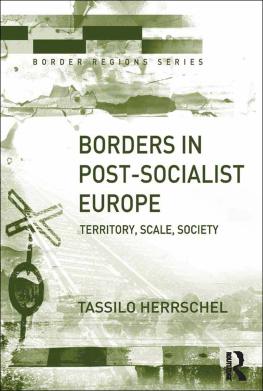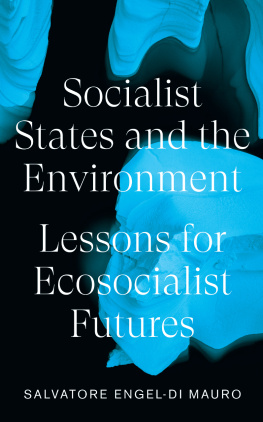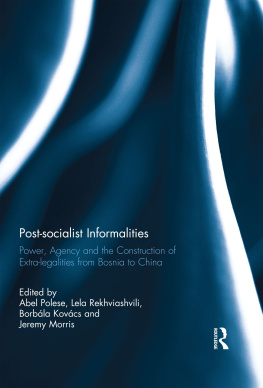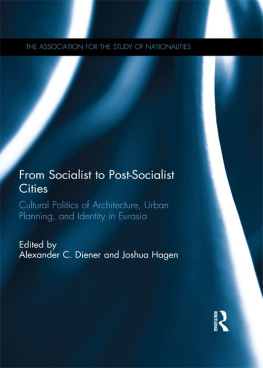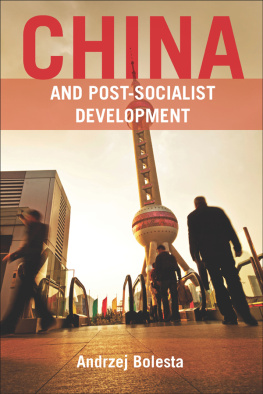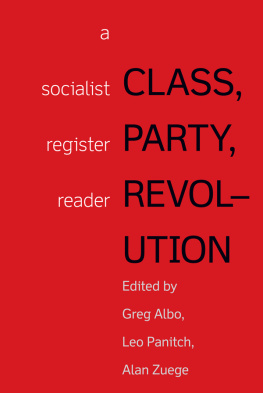Socialist and Post-Socialist Mongolia
This book reexamines the origins of modern Mongolian nationalism, discussing nation building as sponsored by the socialist Mongolian Peoples Revolutionary Party and the Soviet Union and emphasizing in particular the role of the arts and the humanities. It considers the politics and society of the early revolutionary period and assesses the ways in which ideas about nationhood were constructed in a response to Soviet socialism. It goes on to analyze the consequences of socialist cultural and social transformations on pastoral, Kazakh, and other identities and outlines the implications of socialist nation building on post-socialist Mongolian national identity. Overall, Socialist and Post-Socialist Mongolia highlights how Mongolias population of widely scattered seminomadic pastoralists posed challenges for socialist administrators attempting to create a homogenous mass nation of individual citizens who share a set of cultural beliefs, historical memories, collective symbols, and civic ideas; additionally, the book addresses the changes brought more recently by democratic governance.
Simon Wickhamsmith is a lecturer in English at Rutgers University, USA, and a translator and scholar of twentieth and twenty-first century Mongolian literature.
Phillip P. Marzluf is a professor of English at Kansas State University, USA.
Central Asian Studies
31Kyrgyzstan Regime Security and Foreign Policy
Kemel Toktomushev
32Legal Pluralism in Central Asia
Local Jurisdiction and Customary Practices
Mahabat Sadyrbek
33Identity, History and Trans-Nationality in Central Asia
The Mountain Communities of Pamir
Edited by Carole Faucher and Dagikhudo Dagiev
34Critical Approaches to Security in Central Asia
Edited by Edward Lemon
35Russian Practices of Governance in Eurasia
Frontier Power Dynamics, 1619th Century
Gulnar T. Kendirbai
36Practices of Traditionalization in Central Asia
Edited by Judith Beyer and Peter Finke
37Uzbekistans International Relations
Oybek Madiyev
38Parliamentary Representation in Central Asia
MPs Between Representing Their Voters and Serving an Authoritarian Regime
Esther Somfalvy
Socialist and Post-Socialist Mongolia
Nation, Identity, and Culture
Edited by Simon Wickhamsmith and Phillip P. Marzluf
For more information about this series, please visit: www.routledge.com/asianstudies/series/CAS
Socialist and Post-Socialist Mongolia
Nation, Identity, and Culture
Edited by Simon Wickhamsmith and Phillip P. Marzluf
First published 2021
by Routledge
2 Park Square, Milton Park, Abingdon, Oxon OX14 4RN
and by Routledge
52 Vanderbilt Avenue, New York, NY 10017
Routledge is an imprint of the Taylor & Francis Group, an informa business
2021 selection and editorial matter, Simon Wickhamsmith and Phillip P. Marzluf; individual chapters, the contributors
The right of Simon Wickhamsmith and Phillip P. Marzluf to be identified as the authors of the editorial material, and of the authors for their individual chapters, has been asserted in accordance with sections 77 and 78 of the Copyright, Designs and Patents Act 1988.
With the exception of , no part of this book may be reprinted or reproduced or utilised in any form or by any electronic, mechanical, or other means, now known or hereafter invented, including photocopying and recording, or in any information storage or retrieval system, without permission in writing from the publishers.
. They have been made available under a Creative Commons Attribution-Non Commercial-No Derivatives 4.0 license.
Trademark notice: Product or corporate names may be trademarks or registered trademarks, and are used only for identification and explanation without intent to infringe.
British Library Cataloguing-in-Publication Data
A catalogue record for this book is available from the British Library
Library of Congress Cataloging-in-Publication Data
A catalog record for this book has been requested
ISBN: 978-0-367-35057-4 (hbk)
ISBN: 978-0-367-35059-8 (ebk)
Typeset in Times New Roman
by Apex CoVantage, LLC
In transliterating Mongol Bichig and Cyrillic, we have used in both cases the Tibet and Himalayan Library system, with the exception of the Cyrillic B, which we transliterate with V. Tibetan transliteration follows the most-frequently used standard, established by Turrell Wylie, and Russian is transliterated according to the ALA-LC system.
Mongolian names are given using the ovog (patronymic or, occasionally, matronymic) initial, followed by the given name. Thus, the name of Choibalsan, who took his mothers name, Khorloo, for his ovog name, is written Kh. Choibalsan and indexed as Choibalsan, Kh.
Ariell Ahearn is currently a departmental lecturer and course director for the MSc/MPhil in Nature, Society, and Environmental Governance at the School of Geography and the Environment at the University of Oxford. Her research focuses on contemporary pastoralist livelihoods and forms of work in Mongolia, with particular attention to understanding how pastoralists negotiate their rights to practice mobility and engage as political actors on multiple scales. Recently her work in Mongolia has become increasingly focused on herdermine interactions and transformations in the rural economy (including land, livestock, and infrastructure).
Jargal Badagarov is a specialist in Mongolic historical linguistics. His Ph.D. thesis (2013) was on the comparison of the Dagur and Buryad languages in diachronic perspective. During the last two decades, he has conducted numerous expeditions to explore Mongolic languages and dialects in Mongolia, China, and the Russian Federation and has been developing language tools for Buryad and other Mongolic and Altaic languages. Currently he is conducting postdoctoral research at the University of Heidelberg on the development of political terminology in Mongolian within the European Research Council project, Entangled Parliamentarisms: Constitutional Practices in Russia, Ukraine, China and Mongolia, 19052005.
Holly R. Barcus is the DeWitt Wallace Professor of Geography at Macalester College. Barcus research interests include migration, ethnicity, and environment in remote rural regions across the globe. She is Associate Editor of the




